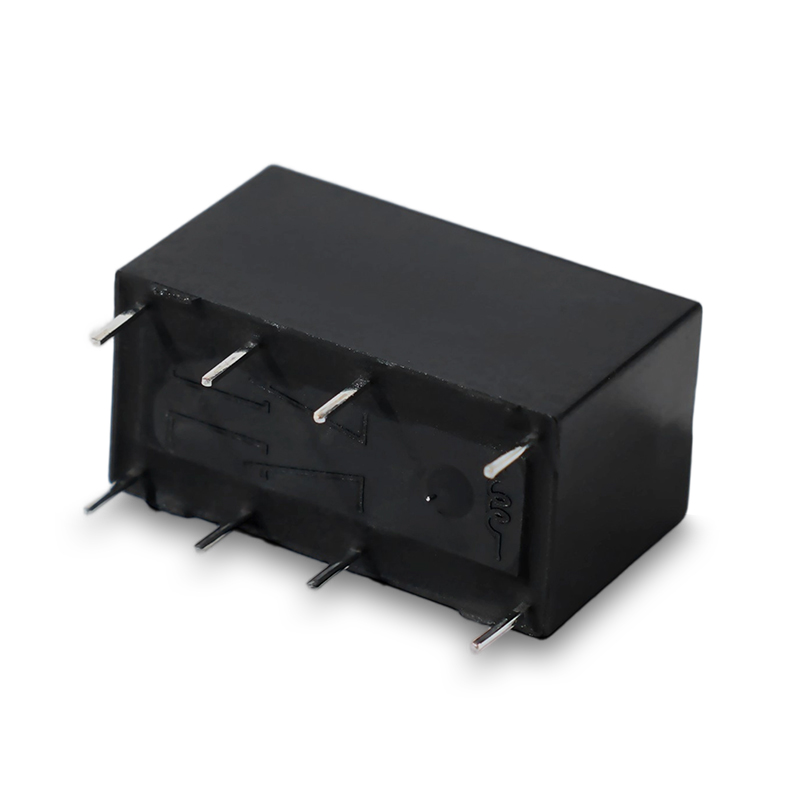Choosing the right relay for harsh environments requires careful consideration of both the application and the operating conditions. Relays are critical components in electrical systems, providing control over circuits without direct human intervention. In challenging settings, such as industrial plants, outdoor installations, or transportation systems, selecting a relay that can maintain reliable performance under stress is essential.

Harsh environments can present several difficulties for relays. High temperatures, humidity, dust, vibrations, and exposure to chemicals can all impact a relay's performance and lifespan. For example, an outdoor solar installation may expose relays to direct sunlight and rain, while a factory automation system might expose relays to constant vibration and airborne particulates. Understanding the specific environmental challenges of the application is the one step in choosing a relay that can withstand these conditions.
High current DC relays are commonly used in applications such as battery management, electric vehicles, and industrial equipment. When selecting a high current DC relay, it is important to consider its current rating relative to the load it will control. Continuous operation at or near the relay's rated current can reduce its lifespan. Therefore, choosing a relay with a margin above the expected load is advisable. Additionally, the relay's contact material and design should be suitable for handling DC loads, which can produce arcing when switching off. Some high current DC relays include features such as arc suppression to improve durability and reliability under demanding conditions.
24V AC relay switches are often used in control circuits for HVAC systems, motor controllers, and lighting systems. These relays operate on a lower voltage control signal while managing larger AC loads. When selecting a 24V AC relay switch for harsh environments, it is important to consider the insulation rating and coil protection. Relays exposed to dust, moisture, or chemicals may require additional protective housings or conformal coatings to maintain reliable operation. The ability to handle frequent switching without performance degradation is also a key factor for control circuits that operate continuously or on tight schedules.
Relays in harsh environments should have clearly defined temperature and humidity tolerances. bad heat can affect coil resistance and advance to premature failure, while excessive cold may reduce mechanical responsiveness. High humidity levels can contribute to corrosion of contacts and other internal components. Selecting a relay with sealed or environmentally protected construction can help prevent damage caused by moisture and contaminants. Some relays are designed with gaskets or fully enclosed housings to reduce exposure to external conditions, improving reliability in outdoor or industrial applications.
Mechanical and Electrical Durability
Vibration and shock resistance are important factors in environments such as transportation or heavy machinery. A relay designed to withstand mechanical stress is less likely to experience contact misalignment or internal damage. Electrical durability, including the ability to handle frequent switching cycles and voltage surges, is equally critical. Features such as reinforced contacts and arc-resistant designs can enhance the relay's ability to operate under demanding electrical conditions.
Proper installation and routine inspection also play a role in ensuring reliable operation. Relays should be mounted securely to reduce exposure to vibration and physical impact. Electrical connections must be tight and corrosion-resistant to prevent intermittent faults. Periodic testing can help identify potential issues before they advance to failure, extending the service life of relays in harsh environments.
Selecting relays for harsh environments involves balancing electrical performance, mechanical durability, and environmental resistance. High current DC relays and 24V AC relay switches each have specific considerations, from current handling and contact materials to coil protection and environmental sealing. By understanding the application requirements and potential environmental challenges, engineers can choose relays that deliver consistent performance, reduce downtime, and support the overall reliability of electrical systems. Careful selection and proper installation can ensure that relays continue to function effectively, even in demanding conditions.
Quick Contact
Yueshang Innovation Park, Wengyang Street, Yueqing City, Zhejiang, China
Pages
Stay In Touch
If you have any questions or need help, feel free to contact with our team.